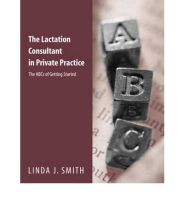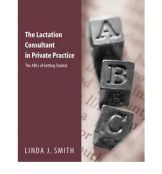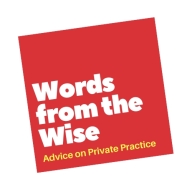
Guest Post By Brandy Walters, BBA, IBCLC, RLC 
In private practice, you are vulnerable. You are entering someone else’s home that you’ve never been to before. They may know about you, what you look like, about your family and more through your website or business Facebook page; however, you know nothing about them, except that they have a baby. Just like in your mothering, listen to your instincts. Google the address you are heading to BEFORE the day of the consult – not on your way there. If you have any sort of “funny feeling” you can say no. This is a relationship you are beginning and you have half of the say.
- Do not go to a home of someone you have not talked with. If you have only spoken with a male, never heard a mother’s voice or had all contact via text with a male, don’t go to the home. I did this once. Exactly once. I called the midwife I was working with and told her my mistake. She said to keep my phone in my hand with 911 dialed and my finger on Send OR simply cancel the appointment. When I arrived at the condo, there was construction on the front so a large piece of plastic was over the door. A male answered the door and to the left of the door were three pairs of men’s shoes. I insisted he go up the stairs first and my heart stopped pounding when I saw a baby swing. I should not have put myself into that position.
- Do not go to a home you feel weird about, have a funny vibe about or just plain do not want to go to. You reserve the right to not service a client. Listen to yourself, your instincts and heart.
- Do not say yes to someone you should say no to. You can say no to clients just like they can say no to you.
- Do not leave yourself in an uncomfortable position. I had a client who laughed when I was finishing our very long 2.5 hour consult when I told her I would need my fee and needed to finish with her for the day. She said, “You expect payment?!” I responded, “Yes, we discussed it over the phone and my fee is $XXX.” She replied, “You get paid through the hospital, they sent you here.” I reminded her I was not from the hospital or affiliated in anyway with the hospital. She did write me a check and I deposited it immediately.
- Do not go to the hospital as a private IBCLC. You don’t have privileges there. You don’t belong there. Your role is in home support.
Do not talk about your family, your kids, your schedule, your breastfeeding experience. None of that matters. This is about the mother. The very needy mother in front of you, not you. If she asks, keep your answers simple. How many kids do you have? 3 boys. How long did you nurse your boys? Over a year each. Quickly bring the subject back to her: What is your breastfeeding goal?
- Do wear a name tag when you get out of the car before you enter a client’s house.
- Do introduce yourself the minute the client answers the door. Acknowledge everyone in the room including grandparents and especially a dad. Do use everyone’s name while talking to them, including the baby’s.
- Do have the client sign a consent form first. Every time you see her. Every client you see.
- Do give the parents a receipt for payment and any health reimbursement forms they can submit for possible reimbursement for your services. Any time our lactation codes get in front of the insurance companies, it is an opportunity.
- Do wear business casual WASHABLE clothes. Jeans or shorts are not appropriate. Present yourself as a business person. But be sure everything you wear can be washed due to dog hair, baby spit, baby poop, baby drool and mommy tears.

- Do wash your hands before touching the baby!
- Do have boundaries and KEEP them. If you decide you don’t take texts or phone calls after 8 pm, do not take a call at 8:05 pm. If you don’t work on Sundays, do not do doctor reports or go over your finances.
- Do go on online support/help forums, Facebook pages of La Leche League, birth worker groups and such. You can get referrals this way, learn about midwives in your area and develop relationships with the people you need for referrals.
But Do NOT get anxious, nervous and distraught if you see YOUR clients reaching out for more help other than yours. Social media is a means for mothers to get support. Some mothers need a lot of support and from different sources. Do NOT question your ability if she wants another opinion or reaches out for more ideas. Just know the ONE negative comment can hurt more than three referrals or satisfied clients.
- Do take a vacation. Change your voice mail message, and put on your vacation responder on your email. If you are lucky enough to have another IBCLC in the area you can trust, ask her if you can refer people to her for that time and leave her number on your voicemail. Birth workers give and give and give. We need to take a break and to recharge too.
- Do continue your education. Either through CERPS or individual study, it is important to stay up-to-date in our field. Connect with other professionals and learn from them. Enroll in online breastfeeding conferences such as iLactation and Gold Lactation.
Brandy Walters, BBA, IBCLC runs In Home Lactation Specialists, LLC. Look for her on Facebook. Stay tuned for part 4 coming soon.
Are you a lactation specialist (of any kind) in private practice? Consider sharing your experience – tips, lessons learned, do’s and don’ts, challenges, etc. in Galactablog’s “Words from the Wise” series. Contact us here or at galactablog@gmail.com.




 Are you a lactation specialist (of any kind) in private practice? Consider sharing your experience – tips, lessons learned, do’s and don’ts, challenges, etc. in Galactablog’s “Words from the Wise” series. Contact us
Are you a lactation specialist (of any kind) in private practice? Consider sharing your experience – tips, lessons learned, do’s and don’ts, challenges, etc. in Galactablog’s “Words from the Wise” series. Contact us 


 Are you a lactation specialist (of any kind) in private practice? Consider sharing your experience – tips, lessons learned, challenges, etc. in Galactablog’s “Words from the Wise” series. Contact us
Are you a lactation specialist (of any kind) in private practice? Consider sharing your experience – tips, lessons learned, challenges, etc. in Galactablog’s “Words from the Wise” series. Contact us